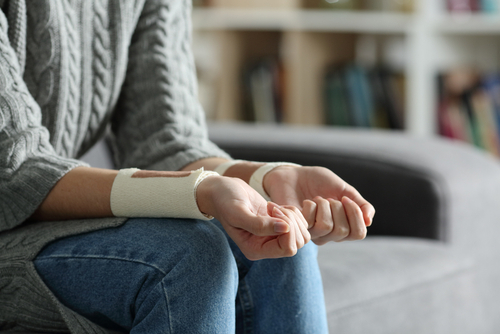
Why do teens self-harm?
Teen self-harm comes in a variety of forms. Though cutting is one of the most common types of self-harm, it can also include burning, hair pulling, scratching, hitting, and many other things. Some forms of self-harm are more extreme than others, but all self-harming behavior is unhealthy. It’s important to note that the person engaging in self-harming behavior isn’t necessarily suicidal. Though suicidal thoughts and self-harming behavior can coexist, they don’t always go hand-in-hand. As counterintuitive as it might seem, people often use self-harm as a way to feel better. Some of the most common reasons that teens hurt themselves include:- To numb negative feelings by having something visceral to focus on
- To feel something when they otherwise feel emotionally numb all the time
- To calm down when they feel anxious or overwhelmed
- To feel like they’re in control of something when they feel like the rest of their life is out of control
- To punish themselves for something that they’ve done
How can I help my teen?
Talk to them about it Starting the conversation might be hard, but it’s worth it. Self-harming behavior is often viewed as shameful, and a lot of teens try to cover it up. So, don’t be shocked if your teen denies the behavior or tries to hide it. Talking about it helps bring the behavior to the surface so that you can both address it. Get professional help Make an appointment with your child’s pediatrician or family doctor so that you can start addressing the behavior. They should have some insight for you and can probably recommend a local therapist to speak with as well. Kids who self-harm typically know that it isn’t actually helping them, but they don’t know what else to do. Receiving therapy can help them develop new, positive coping skills to replace self-harming behavior. Encourage self-improvement One of the hardest things for teens who self-injure is to genuinely feel good about themselves. Self-harm typically coincides with low self-worth and self-esteem. As teens work on self-improvement and build their self-worth, they are less likely to keep hurting themselves. When they know their worth, they want to make life even better, not worse. Building self-esteem in teens Helping a teenager build their self-esteem is no easy task. As their parent, you know how much they matter and how valuable they are, but they might not see it. If your teen is self-harming, try some of these methods to start building self-esteem in teens.- Positive self-talk. Encourage your teen to use positive self-talk, and you can role model the behavior for them. If you hear your teen talking down to themself, remind them to flip the script. Learning to stop speaking poorly of yourself can be really hard, but it’s an important step in building self-esteem.
- Positive thinking. Teach your teen how to search for the positive in life. As we all know, life isn’t going to be great all the time. It’s important for teens to learn how to keep a positive mindset even when life isn’t going well. Seeing the world from a more positive perspective can help them move through life more peacefully.
- Mantras. Having a personal mantra can help teens overcome negative thoughts. It gives them something to focus on and repeat to themselves when negative thoughts try to creep in. You can even hang posters around the house or write on a bathroom mirror to keep the mantra visible.
- New skills. Teens who try new activities and build new skill sets tend to show improved self-esteem. Having something that they enjoy and that they’re good at helps them see themselves in a more positive light and feel more confident to keep improving their life.


Leave a Reply